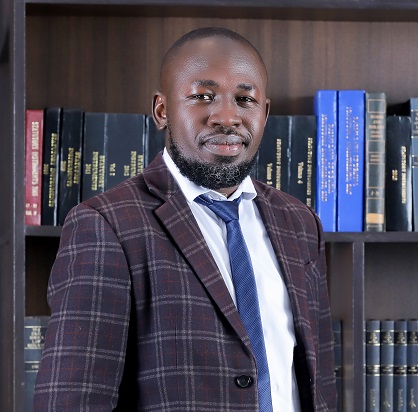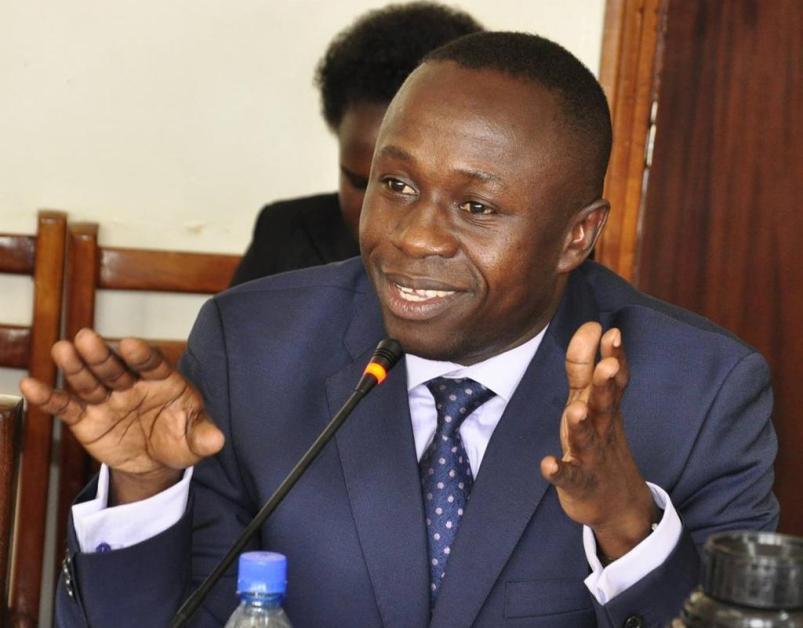Hassan, who visited a top government secondary school in Kampala’s Nakawa division on Tuesday afternoon, was left with a sense of frustration regarding the conduct of the headteacher. He tasted the ill-treatment at the hands of headteachers, who are public officers expected to uphold ethical and professional conduct.
Upon arriving at the school, Hassan made his way to the secretaries and requested a meeting with the headteacher, 30 minutes after lunchtime. After waiting for a few minutes, the headteacher finally appeared. However, Hassan was to meet with a rude response from the headteacher.
“The man appeared, entered his office without greeting or saying good afternoon, he seemed to ignore my presence, acting busy by making endless calls, while other people, who appeared to be teachers, entered the office and socialized, chatting and laughing,” he narrated.
After a prolonged wait, Hassan felt compelled to knock on the door and make an attempt to enter the office after someone had left, to assert his presence. However, he was met with a dismissive response, being told to wait outside and he was not allowed in.
The frustrated parent remained on the bench for another half an hour, and when the headteacher eventually emerged, he only stated that he had a meeting, without explaining when he would return.
Hassan recalls the headteacher’s demeanor as uninterested and dismissive, conveying a message that he could either wait or leave. The headteacher then promptly closed his office and left, without showing any willingness to understand Hassan’s purpose of visit or who he was.
This example is just one of many instances of how headteachers and teachers in public schools, and even some hitherto A-class private schools, treat parents. Many headteachers act as if they are demigods or emperors, forcing parents and visitors to dance to their tunes and treating them like children.
Lydia Namubiru also had a similar experience at a top government boarding high school in Wakiso district on the same day. She had visited the school alongside a lawyer to address a particular matter, but what she witnessed left her in disbelief.
Namubiru describes how parents are treated like nobodies from the moment they arrive at the school gate, with gatekeepers ordering them around. When they arrived at the headteacher’s office, they found four other parents waiting on the edge of the bench, feeling tense and apprehensive, like Catholics waiting to get into a confession box.
Despite the uncomfortable atmosphere, Namubiru notes that some of the women saw it as a favor to be allowed to see the headteacher. During the few hours she spent waiting, Namubiru witnessed parents being treated as if they were infants. The relationship between the headteacher and the parents seemed more akin to that of a master and a slave!
Namubiru recalls that the headteacher invited the group of parents who had visited him into his office all at once. The headteacher then proceeded to offer them a mere two minutes each to state their concerns, without any regard for confidentiality.
Even when one parent attempted to whisper a response to the headteacher, it was done in vain as the reply came out in ‘bold letters”, leaving no room for privacy. She adds that this lack of privacy and confidentiality only added to the already tense atmosphere.
Namubiru also had her share of an unpleasant experience when the headteacher rudely called her a “young girl”. To Namubiru, who is proudly stating that she is soon turning 40, this calling her a young girl was disrespectful and frustrating.
Namubiru further adds that after giving a group of parents some ten minutes, the headteacher abruptly left for a meeting, leaving those whose issues had not been addressed to wait. Some parents were forced to wait for hours without any indication of when the headteacher would return or if he would see them.
Namubiru and the lawyer were among the waiting group due to the nature of their visit. However, she observed other parents leaving the school at dusk, after wasting their entire day waiting for the headteacher.
Parents trust schools and their administrators to provide a safe and nurturing environment for their children to learn and grow. However, this trust has been shattered for many parents who have experienced mistreatment at the hands of headteachers and other school authorities.
These mistreatment comes in various forms, from being ignored or belittled during their visits to schools, to being threatened with expulsion of their children for not complying with uncomfortable demands.
Parents are hesitant to speak out about mistreatment and abuse they’ve experienced at the hands of school officials, as they fear potential consequences for their children’s education. As our reporter carried out interviews with parents for this story, it was evident that many refused to speak openly and honestly about their experiences.
The power dynamic between headteachers and parents is imbalanced, with the former dictating decisions and the latter feeling powerless and unheard.
From the interactions, this reporter understood that this dynamic is particularly noticeable during school meetings, where parents are often relegated to the role of passive observers as omniscient, powerful headteachers, who enjoy great lives thanks to the high fees paid by parents, issue decrees.
The culture of fear is not limited to parents alone, as it is also instilled in children who suffer silently. Many schools often warn children not to speak about any incidents, thereby denying them the opportunity to seek support from parents or authority who could help.
For instance, during the COVID-19 pandemic, this fear was even more evident, with many schools hiding cases and threatening children not to inform their parents about the situation. Shockingly, it later emerged that some learners had been hospitalized without parents’ knowledge, and even those who were informed were reluctant to speak out.
When our reporter interviewed some of the parents, they claimed that the headteachers had instructed them not to report what was going on in school.
“It could jeopardize the school’s reputation, and it could lead to our children being expelled from the school,” one parent commented. Another parent told our reporter that “headteacher ajja kunyiiga,” would get upset if they discussed the matter in the media.
Off the record, some other parents shared with our reporter their experiences during the selection period for senior one and senior five students. They said that during this time, the power of headteachers is particularly elevated.
But what explains the unpleasant bahaviour of teachers and other school managers to parents and learners? There is no clear cut answer to this, at least not yet. But teachers have a list of reasons they front in defence of their negative behaviour.
For instance, David Ssengendo, a former headteacher at Buganda road primary school defends teachers’ conduct, shifting the blame to parents whom he accuses of misunderstanding the role of the headteacher.
He gives an example of parents who arrive at schools unannounced and expect immediate attention, yet the headteachers have tight schedules to adhere to.
But Dr. Yusuf Nsubuga, a former director of basic education at the Ministry of Education, who has equally observed the vice, attributes it to the declining education standards, which has seen a few schools emerge as “the best” making them so proud and developing “an attitude”.
With numerous parents seeking out for the so-called first class schools for their children, the educationist observes that schools hence victimize parents, learners, and the community at large.
However, Dr Nsubuga also places some blame on the parents themselves for tolerating the mistreatment. He believes that in some circumstances, when a parent stands up and refuses to accept ill-treatment, the headteacher can be tamed and forced to change their behavior.
Lydia Namubiru has a strong conviction that the way parents are treated in certain schools is a reflection of the country’s educational history, possibly influenced by the colonial powers’ attitude towards parents seeking education for their children.
She also notes that the situation in schools reflects a larger societal problem, where those in positions of power tend to overlook and disregard those they consider beneath them.
Nevertheless, she recognizes the urgent need to address this issue. At the same time, Namubiru implores parents not to fall prey to victimization or allow themselves to be undermined by headteachers or other school officials.
Monica Monge Abenakyo, a retired headteacher, acknowledges the ill treatment subjected to parents and says, there is need for school managers to adopt a more respectful and customer-friendly approach while engaging with parents and visitors.
Abenakyo who is currently a member of the education policy review commission notes that such behavior could improve the public image of schools and foster better relationships between school staff and the community they serve.
Meanwhile, Patrict Kaboyo, an education consultant, places the blame on the education ministry, stating that it has failed to empower and define the role of parents in the education system.
He argues that structures like Parent-Teacher Associations and Boards of Directors, which could hold headteachers accountable, have been neglected and are not functioning effectively. This failure to reprimand headteachers for their mistreatment of parents and students has led to the current situation.
During a recent address to headteachers at the senior one selection, various ministry officials, including the Permanent Secretary, acknowledged that headteachers mistreat parents. However, it appears that the ministry is merely paying lip service to such occurrences in the education sector.
Dr. Mary Gorreti Nakabugo, an Educationist and Executive Director of Uwezo – Uganda, a non-for-profit organisation working to promote equitable quality education, recognizes that the strained relationship between parents and schools can have negative consequences and should not be tolerated.
She acknowledges that some headteachers and teachers act like dictators within their schools, leaving parents afraid to voice their opinions about how things should be done.
To address this issue, Dr. Nakabugo recommends providing professional development opportunities for headteachers to improve their leadership and management skills. This training should focus on fostering a positive working relationship between the school, parents, and community to create an optimal teaching and learning environment.
One question that begs answer if Uganda is to fix the education system is how to ensure that parents, learners, and the community at large are not victimized by the few schools considered the best. One day, that question will have to be answered.
–URN





